QuestionHello, I have a 5 1/2 month old miniature schnauzer who is absolutely adorable and very loving but I'm having several issues with training him. He'll go to the bathroom outside and he has no problem holding it for about 6 hours but he mostly goes in the house when I'm home. I give him plenty of chances to go outside but I can't seem to make him stop going in the house. He does it mostly in 1 area, which I constantly steam clean but it doesn't seem to help. He walks very nicely on a leash but he goes nuts with pulling, barking and jumping when someone jogs or bikes past him. I've figured out that most of the time it's because he wants to play with them but people think he's ferocious by the way he behaves. He refuses to stay or come when I tell him to and yelling at him or popping his behind does no good. He also growls and barks if he doesn't get what he wants. Another big problem is his hard biting. I understand he's teething but he'll lock his jaws down on my fingers and start chewing and no matter how many times I say "gently" he continues to do it. I've placed him on his back and put a hand on his chest and raised my voice to him, which seemed to work for a few minutes but then he went right back to it. I'm planning to take him to puppuy training shortly but I was wondering if there's anything I can try in the meantime until I can find a decent trainer. Oh...and spraying him in the face won't work. He adores water and being sprayed in the face with a hose as well as diving into the bathtub...so much to the point that I can't water my yard unless I want to bathe him after because if I hold him while I spray the hose he screeches as if someone is slowly killing him. He's adorable most of the time but he's become a spoiled brat despite my attempts at disciplining him. HELP! Thanks.
AnswerHi! Thanks for writing - your puppy sounds like quite a cute character. I'm sorry to hear about the challenges you're having and I know they can really be frustrating. But be assured that you're not alone. I can tell that you're doing your very best and that he is one very loved puppy!
About the accidents in the house, I would strongly suggest restricting his freedom a bit more until he's fully house trained. The very best thing you can do, in my opinion, is to prevent every single accident you possibly can by using management and supervision. You're already getting him out often - that's FANTASTIC! Now, by limiting his unsupervised freedom (until he can really be trusted) you can manipulate the situation so that he can ONLY go to the bathroom outside, which will ingrain that into his mind and become habit.
During this time, keep him within your peripheral vision using baby gates or something to keep him in the area. Taking control of the situation in this way will break the cycle AND mean no more accidents for you to have to clean up!
The restriction won't last forever. Just keep taking him out often, praising him generously for doing what you want him to do and prevent new accidents. As the accidents decrease you can start giving him more opportunities to earn your trust with increasing periods of freedom without supervision.
Don't forget (you're probably already doing this but just a reminder), some of the most opportune times to take a puppy out are after he drinks, shortly after he eats, before and after sleeping, and even after exercise or a play session. When he does go outside, make a really, really big deal out of it. Have some especially delicious treats (like cheese, turkey, or whatever he loves and doesn't get too often) handy and ready to take outside with you. Give him the treat immediately after he eliminates. If you give him a little too much freedom indoors and he has an accident, ignore it unless you catch him doing it (in which case get him right out to finish, then praise him for finishing outside). If he doesn't go to the bathroom when you take him out and you suspect he could, he should stay in your sight or a restricted area when you go indoors. Try taking him out again in a short while, and if he goes, then he can be trusted with extended freedom in the house.
I would suggest altering the area in your home where he tends to go if possible to help take away any "habit" feeling he might have about the area. Maybe you could temporarily put a large potted plant or a box on that spot. It can be really difficult to get those spots truly clean. Dogs' noses are so sensitive. There are a lot of products that claim to eliminate the smell but not many of them seem to live up to their advertising. Sometimes a blacklight can help to show whether you're really making progress with it. But breaking the cycle by increasing the supervision and blocking access to that spot should make a huge difference.
About the biting (ouch!) As you know, puppies use their teeth to explore and learn about the world. And of course, one of the most important things they need to know is that it's NOT okay to put people in their mouths and bite down! So what exactly is the best way to do that? Well, the first place I begin (and what usually has the greatest effect in my experience) is to take a cue from other dogs, and communicate your displeasure just the way another dog would. If your puppy gnawed too hard on his mother or playmates, they would simply put an end the situation by leaving - essentially saying "This hurts. I quit". And to the biting dog, that's no fun! So he learns that in order to have fun and companionship, he shouldn't bite.
The next time he opens his mouth on your hand, "quit" by folding your arms and completely ignoring him (don't even give him your eye contact!) or even get up and walk away. When you do this, you will tell him "I don't want to play or sit with you, I don't enjoy your company with you when you bite me". Imagine that his biting activates a huge flashing screen that says "GAME OVER".
After he's settled down, you can go back to cuddling or playing until he bites again. Reward moments of calmness and appropriate play by playing with him and praising him.
If you consistently "leave" every time he uses his teeth on you, you should start to see better manners developing! This usually works better than using physical manipulations because he almost certainly will interpret any rolling, mouth holding etc. as rough play, and will think that you want to tussle too, encouraging the biting even more.
For the pulling and barking on leash, you'll want to do some walking training with refocusing/redirection so that he will learn to walk on the leash nicely with you no matter who goes by. Puppy training is a wonderful idea, and will help a lot in this area. It will give you guided support and the advantage of working with controllable distractions!
I hope these ideas help and I wish you the very best with your puppy. If you have any questions about any of this or anything else, please don't hesitate to ask.

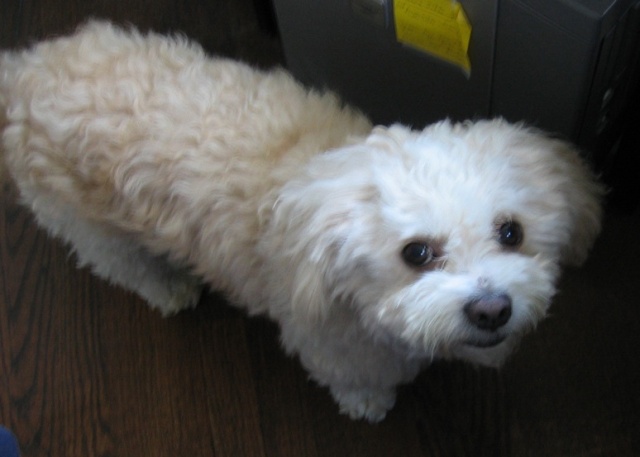 male dog marking while on walks
Question
My dog
I have a 3 year old male dog (probably
male dog marking while on walks
Question
My dog
I have a 3 year old male dog (probably
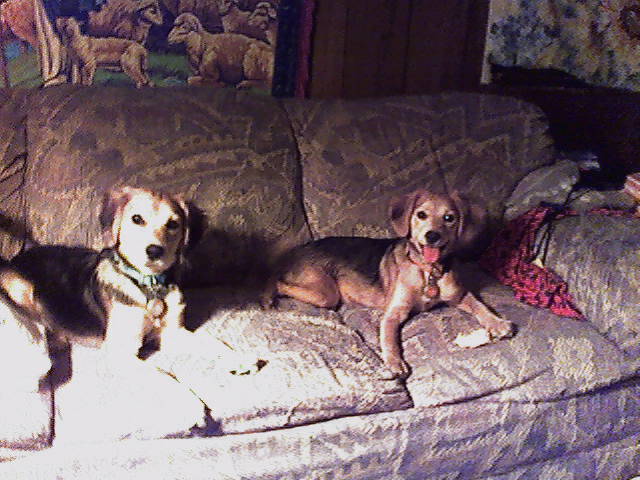 bladder issues in rescue pups
Question
collie-shepherd pups
We have had two rescued s
bladder issues in rescue pups
Question
collie-shepherd pups
We have had two rescued s
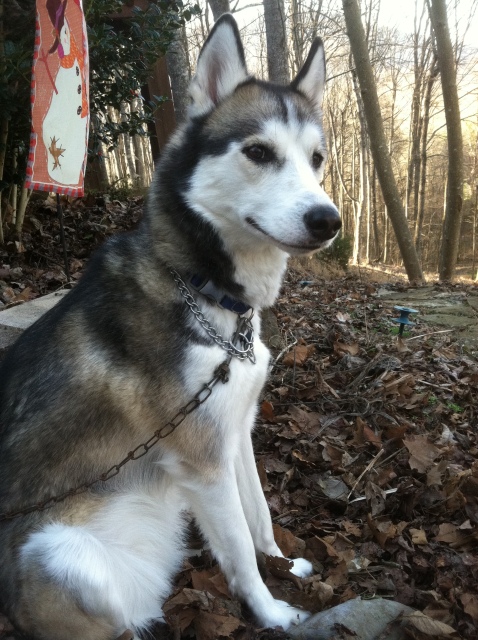 Is putting my dog in a cage a good form of punishment?
Question
Blue
My Siberian husky, Blue, as been b
Is putting my dog in a cage a good form of punishment?
Question
Blue
My Siberian husky, Blue, as been b
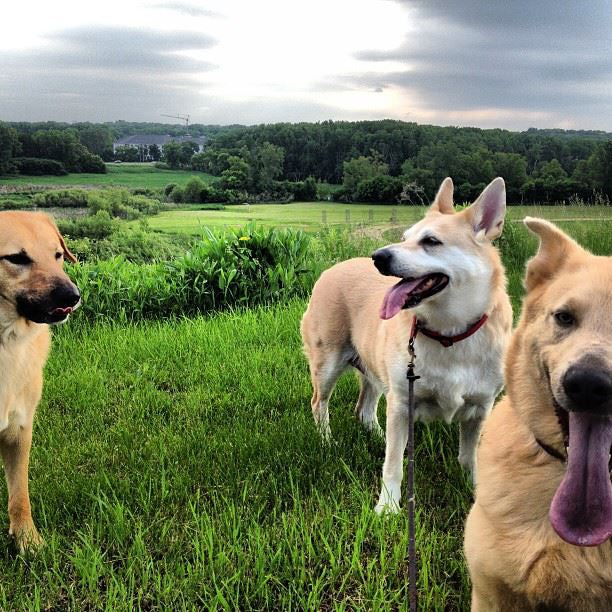 traumatic
QuestionI have a 6 lb Yorkie that is a rescue, weve had
traumatic
QuestionI have a 6 lb Yorkie that is a rescue, weve had
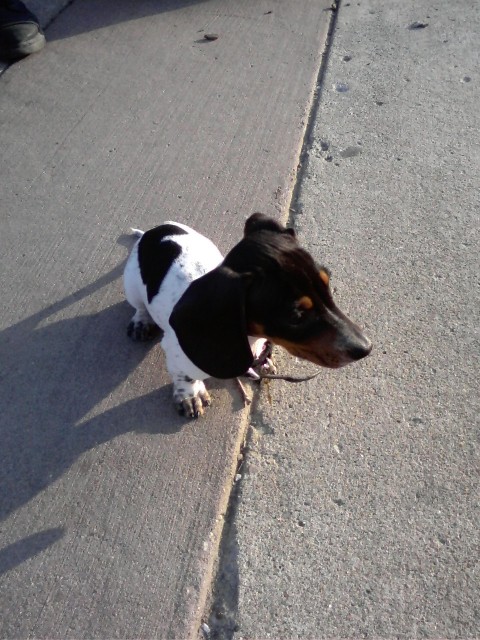 My mini-daschund is breaking ME in
Question
Tyson!
My miniature daschund is 8 months now,
My mini-daschund is breaking ME in
Question
Tyson!
My miniature daschund is 8 months now,